Indian Companies on the FAB 50 List
Despite soaring inflation and slump in growth, 11 Indian companies managed to buck the trend


Asian Paints -
CHEMICALS—COATINGS/PAINT
SALES&ensp$1.8 BLN
MARKET VALUE&ensp$6.3 BLN
Low-profile 70-year-old company makes a repeat appearance on the list. Despite India’s high inflation and slowing demand, posted a 10 percent jump in revenue spurred by greater sales of paint for interiors and exteriors. It operates in 17 countries. Faced tough environment in the Middle East due to the Arab Spring. But that was offset by growth in Asia.
In March, it appointed a new Managing Director and Chief Executive, KBS Anand, a career Asian Painter. Three of the four founding families still own more than half the company. Descendants Ashwin Choksi, Ashwin Dani and Abhay Vakil are regulars on the India rich list.
In the past 6 years, the company has rapidly gained market share, thanks to growth in its premium category now sells 53 percent of the paint sold by listed paint companies. But it’s heading into difficult times because of the slowdown in consumption of discretionary items. Frequent price hikes are also likely to hit volume. Asian Paints has consistently raised prices over the past three years because of raw material price increases.
Number of times the company appears in previous year’s list =1
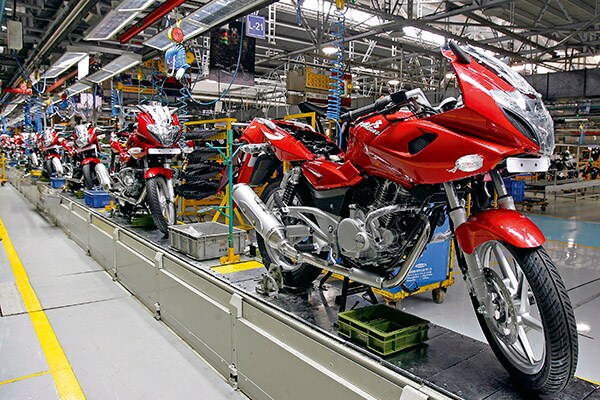
Bajaj Auto
CONSUMER DURABLES—VEHICLES
SALES&ensp$3.7 BLN
MARKET VALUE&ensp$8.8 BLN
Revved up by a 30 percent increase in exports—it sold nearly 1.3 million motorcycles overseas this past year—it makes the Fab 50 for the first time since 2006. The company is world’s third-largest motorcycle maker, but domestic sales were sluggish because of intense competition, high interest rates and rising petrol prices. It accounts for 70 percent of motorcycle exports from India.
Number of times the company appears in previous year’s list = 1
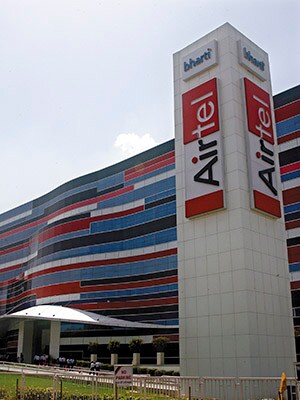 Bharti Airtel
Bharti Airtel
TECHNOLOGY—WIRELESS TELECOM
SALES&ensp$14 BLN
MARKET VALUE&ensp$17.9 BLN
Operates in 20 countries in the subcontinent and in sub-Saharan Africa. Its 262 million customers include 56 million in Africa. Returns to list for the fifth time. New Delhi company provides services from wireless to national and international long distance to digital TV. Launched 4G services in April. Beset by falling profits the last 10 quarters. Sunil Bharti Mittal—founder, chairman and managing director—and his family were worth $8.1 billion as of March.
Number of times the company appears in previous year’s list = 4
The country’s second-largest private sector bank returns to the list after a miss last year ended a 5-year streak. The 18-year-old bank went on a massive expansion spree in the past year, adding 558 branches—for a total of more than 2,500—and 3,000 ATMs. Locations as remote as the Himalayan town of Leh and the beach city of Port Blair now sport branches. Looking to turn people without bank accounts into customers, it plans to reach 10 million families over the next 5 years.
Number of times the company appears in previous year’s list = 5
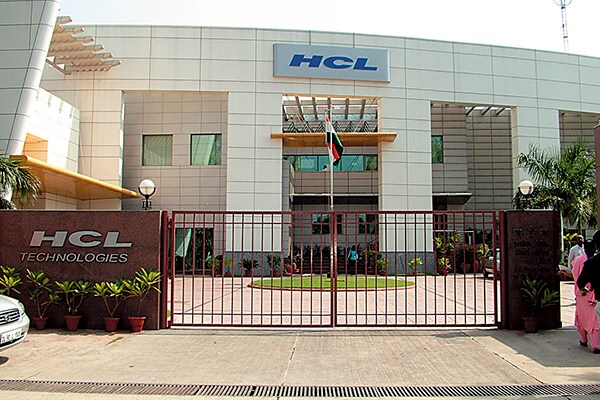 HCL Technologies
HCL Technologies
TECHNOLOGY—SOFTWARE
SALES&ensp$4.2 BLN
MARKET VALUE&ensp$6.9 BLN
The Noida-based software firm appears on list third time in a row. The Americas and Europe supply bulk of revenue, which rose 17 percent while workforce increased 9 percent last year, taking the total to more than 84,000 employees. Founder and billionaire Shiv Nadar holds a 62 percent stake.
Number of times the company appears in previous year’s list = 2 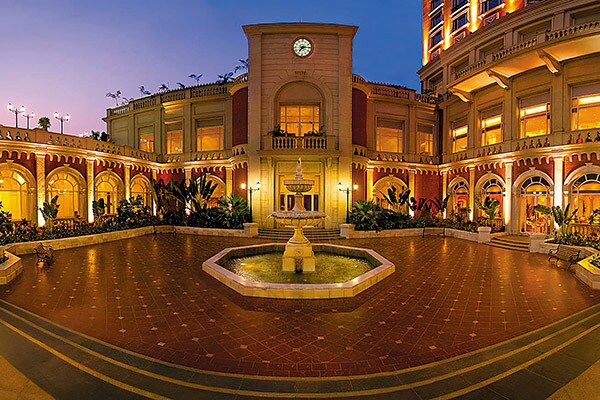 ITC
ITC
AGRICULTURE—TOBACCO
SALES&ensp$5.2 BLN
MARKET VALUE&ensp$36.9 BLN
The Kolkata conglomerate has interests in everything from nicotine to notebooks. Makes fifth appearance on list. Student notebooks, marketed under the Classmate brand, are sold through 75,000 stationery outlets. What started out as cigarette company now derives much of its revenue from non-tobacco businesses.
Number of times the company appears in previous year’s list = 4 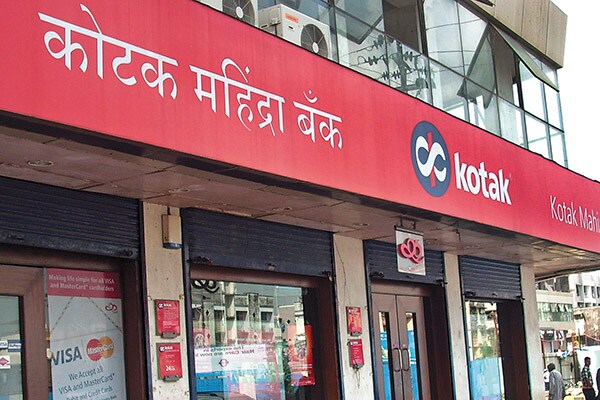 Kotak Mahindra Bank
Kotak Mahindra Bank
BANKING—REGIONAL
SALES&ensp$2.6 BLN
MARKET VALUE&ensp$7.9 BLN
Three-time Fab 50 honouree is flagship of Mumbai’s Kotak Mahindra Group. Struck an exclusive alliance with US-based investment bank Evercore last year to provide M&A advisory services between India and the US, the UK and Mexico. Founder Uday Kotak owns 45.3 percent of bank.
Number of times the company appears in previous year’s list = 2 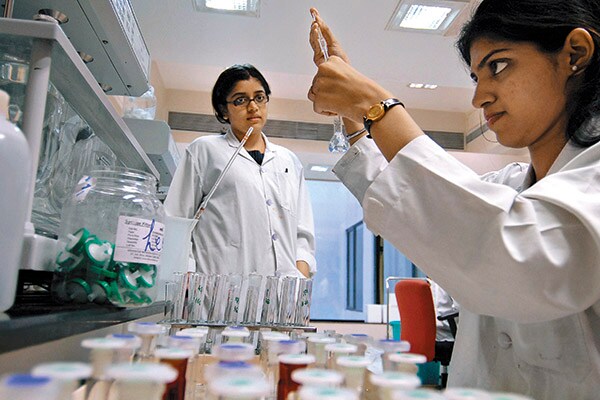
India’s most valuable pharmaceutical major reported a 23 percent surge in profits for the year ended in March, earning it a Fab 50 spot for the first time. Strong performance of Israeli subsidiary Taro Pharma, higher US sales and price increases for its skin products contributed to the spurt. The Mumbai company, which makes and sells speciality prescription products, manufactures at 23 sites and plans $150 million expansion. Market leader in India in niche areas such as psychiatry, neurology and cardiology. Founder and billionaire Dilip Shanghvi stepped down as chairman in March but continues as managing director. In line with its ambition of becoming global player, Sun appointed Israel Makov, former head of Israeli pharma giant Teva Pharma—as chairman.
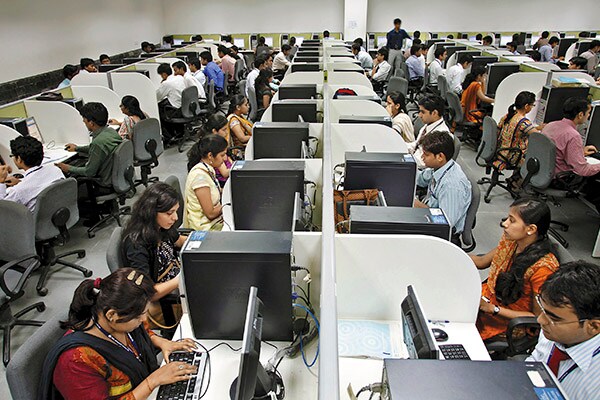
TECHNOLOGY—IT SERVICES
SALES&ensp$9.6 BLN
MARKET VALUE&ensp$44.9 BLN
India’s largest IT services and consulting firm went on its biggest hiring spree, adding 40,000 employees last year. Boasts a workforce that’s now 30 percent women. Operates in 42 countries. Fourth most valuable company in the Fab 50, after Samsung Electronics, Tencent Holdings and Baidu. Makes its fifth appearance and fourth straight.
Number of times the company appears in previous year’s list = 4 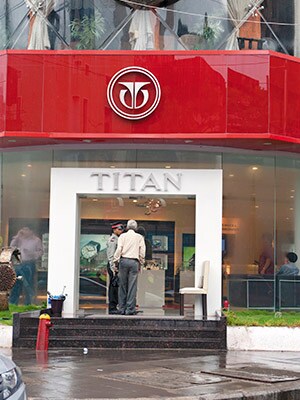 Titan Industries
Titan Industries
RETAILING—JEWELLERY
SALES&ensp$1.7 BLN
MARKET VALUE&ensp$3.5 BLN
In the past decade, Titan’s market capitalisation soared from $45 million to $3.5 billion. Its annual revenue jumped from $153 million to $1.74 billion, while profits shot up from $1 million to $118 million. This year, for the first time, Titan clinches a spot on the Fab 50 list. The company is graduating from last year’s ‘Waiting in the Wings’ list of companies poised to crack the top 50. Titan boasts of five manufacturing plants and 847 stores in seven chains across 160 towns around India.
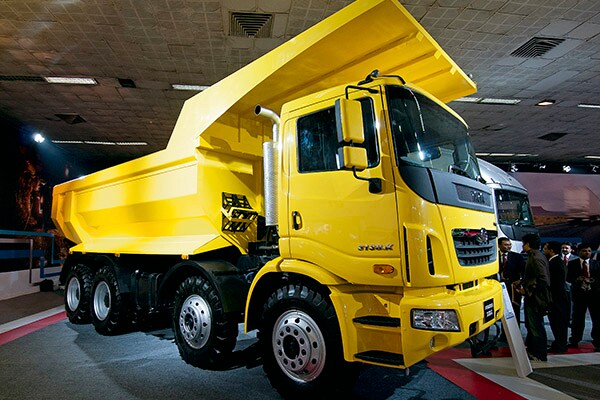
The country’s largest auto company is also the world’s fourth-largest bus-and-truck manufacturer. Revenue grew 20 percent, pushed by robust sales at Jaguar Land Rover unit and for domestic commercial vehicles. Launched its people’s car, Tata Nano, in Nepal and Sri Lanka. Appointed Karl Slym, a veteran GM executive, as its managing director. Jaguar Land Rover, which Tata bought from Ford in 2008, plans to roll out new sports sedans and sports cars in the next 2 years. It’s looking to spend $1.3 billion this year on capacity expansion and product development.
Number of times the company appears in previous year’s list = 1
First Published: Oct 05, 2012, 06:08
Subscribe Now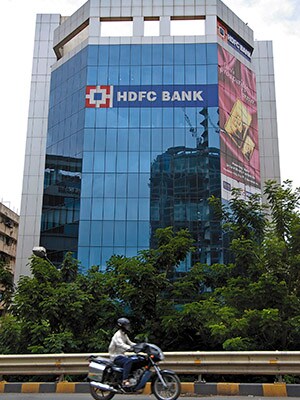 HDFC Bank
HDFC Bank